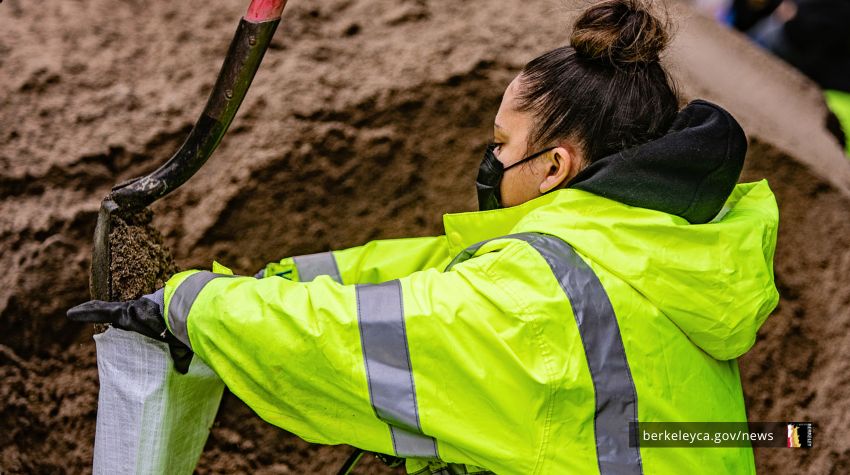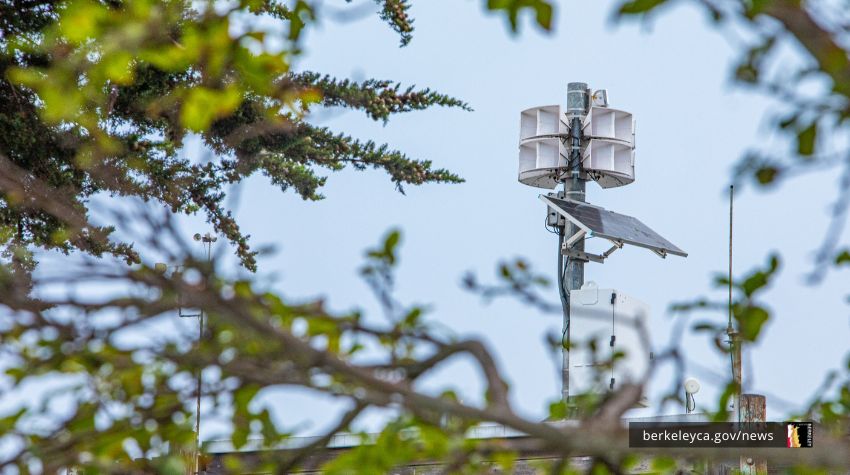Air Quality
Check the AirNow interactive Fire and Smoke Map to find current air quality conditions in Berkeley and follow the tips on this page to protect your health when air quality is poor.
Air quality in Berkeley can be impacted by smoke from wildfires elsewhere.
Check the AirNow interactive Fire and Smoke Map to find current air quality conditions in Berkeley and follow the tips on this page to protect your health when air quality is poor. In all cases, make sure we can reach you in an emergency. Sign up for AC Alert.
Protect your health when air quality is poor
When air is unhealthy, the best option is to reduce physical activity and stay indoors with doors and windows closed.
Drink lots of water to stay hydrated. Smoke can irritate your eyes and airways, cause cough, a dry scratchy throat, runny nose, trouble breathing, and irritate your sinuses.
When inside
Avoid behaviors that make air quality in your home worse:
- Set air conditioning units to re-circulate so you don't bring outside air in.
- Don't smoke, burn candles, or use incense.
- Don't use gas, propane, or wood burning stoves. Avoid frying or broiling meat.
- Avoid vacuuming.
Take precautions when outdoors
Minimize time outside as much as possible.
When you must go outside, don't rely on dust masks or bandanas for protection. They do nothing to protect against smoke particles.
Checking air quality conditions
The best source for up-to-date air quality information is the AirNow interactive Fire and Smoke Map, which is updated with readings from public and private air monitors throughout the Bay Area.
Air Quality ratings
The Air Quality Index (AQI) provides guidance on who should take precautions when.
|
AQI Range |
Health Impact |
What to do |
|
Good |
Air quality poses little or no risk. |
It's a great day to be active outside. |
|
Moderate |
Air quality may pose a moderate health concern for very small numbers of people, such as those who are unusually sensitive to particle pollution. |
Unusually sensitive people: Consider reducing prolonged or heavy exertion. Watch for symptoms such as coughing or shortness of breath. These are signs to take it easier. |
|
Unhealthy for Sensitive Groups |
Air quality may pose risks to people with heart and lung disease, older adults, children, and pregnant individuals. |
Sensitive groups: Reduce prolonged or heavy exertion. It's OK to be active outside, but take more breaks and do less intense activities. Watch for symptoms such as coughing or shortness of breath. |
|
Unhealthy |
Everyone may begin to experience adverse health effects. Members of sensitive groups may experience more serious health effects. |
Sensitive groups: Avoid prolonged or heavy exertion. Move activities indoors or reschedule to a time when the air quality is better. |
|
Very Unhealthy |
Everyone may experience more serious health effects. |
Sensitive groups: Avoid prolonged or heavy exertion. Move activities indoors or reschedule to a time when air quality is better. |
|
Hazardous |
Entire population is likely to be affected. |
Everyone: Avoid all physical activity outdoors. |
Preparing before a bad air event
See the California Air Resources Board’s Smoke Ready California site to learn how to prepare for poor air quality.



